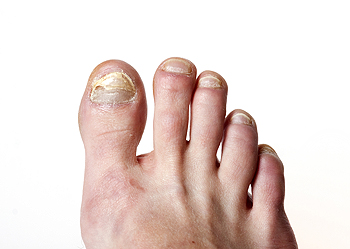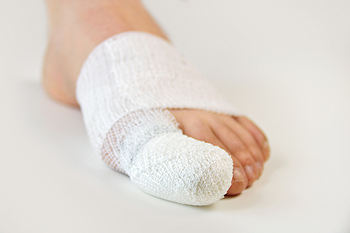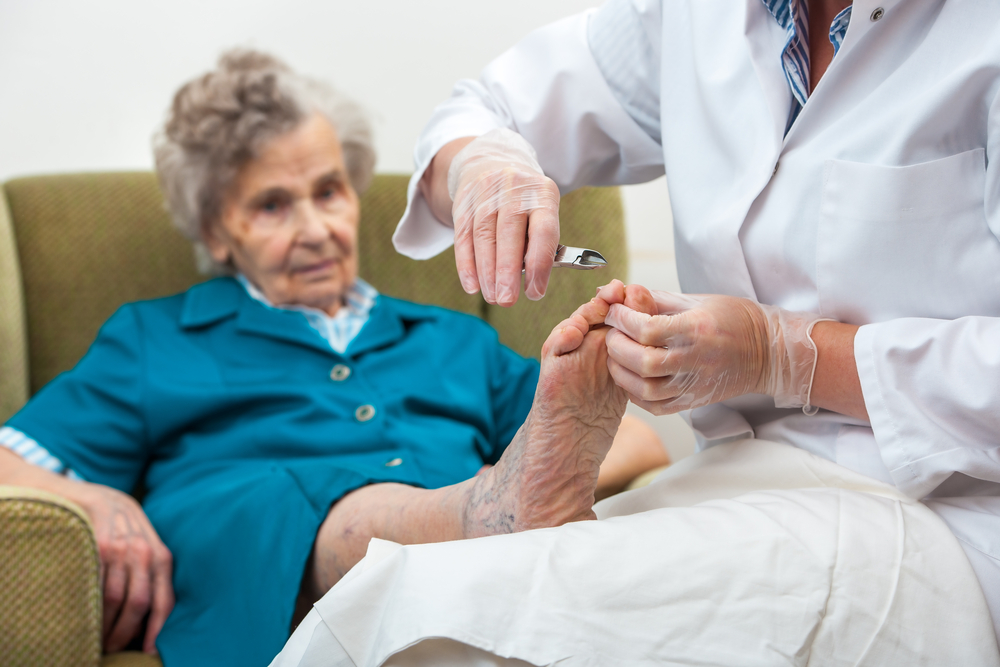 Toenails that are yellow and have become thick can be indicative of a condition that is known as toenail fungus. It is considered to be a fungal infection, and it is extremely contagious. It can be passed between people in warm and moist environments that can include public pools, communal shower room floors, and locker rooms. Methods can be implemented which can help to prevent spreading this condition. These methods can consist of wearing appropriate shoes while in these types of areas, and to avoid sharing shoes, socks, and towels. There are several remedies that may be effective in controlling toenail fungus. If you are afflicted with this condition, it is strongly suggested that you consult with a podiatrist who can discuss treatment options with you.
Toenails that are yellow and have become thick can be indicative of a condition that is known as toenail fungus. It is considered to be a fungal infection, and it is extremely contagious. It can be passed between people in warm and moist environments that can include public pools, communal shower room floors, and locker rooms. Methods can be implemented which can help to prevent spreading this condition. These methods can consist of wearing appropriate shoes while in these types of areas, and to avoid sharing shoes, socks, and towels. There are several remedies that may be effective in controlling toenail fungus. If you are afflicted with this condition, it is strongly suggested that you consult with a podiatrist who can discuss treatment options with you.
If left untreated, toenail fungus may spread to other toenails, skin, or even fingernails. If you suspect you have toenail fungus it is important to seek treatment right away. For more information about treatment, contact one of our podiatrists of Canonsburg Podiatry Associates. Our doctors can provide the care you need to keep you pain-free and on your feet.
Symptoms
- Warped or oddly shaped nails
- Yellowish nails
- Loose/separated nail
- Buildup of bits and pieces of nail fragments under the nail
- Brittle, broken, thickened nail
Treatment
If self-care strategies and over-the-counter medications does not help your fungus, your podiatrist may give you a prescription drug instead. Even if you find relief from your toenail fungus symptoms, you may experience a repeat infection in the future.
Prevention
In order to prevent getting toenail fungus in the future, you should always make sure to wash your feet with soap and water. After washing, it is important to dry your feet thoroughly especially in between the toes. When trimming your toenails, be sure to trim straight across instead of in a rounded shape. It is crucial not to cover up discolored nails with nail polish because that will prevent your nail from being able to “breathe”.
In some cases, surgical procedure may be needed to remove the toenail fungus. Consult with your podiatrist about the best treatment options for your case of toenail fungus.
If you have any questions, please feel free to contact our office located in Canonsburg and McMurray, PA . We offer the newest diagnostic and treatment technologies for all your foot care needs.




